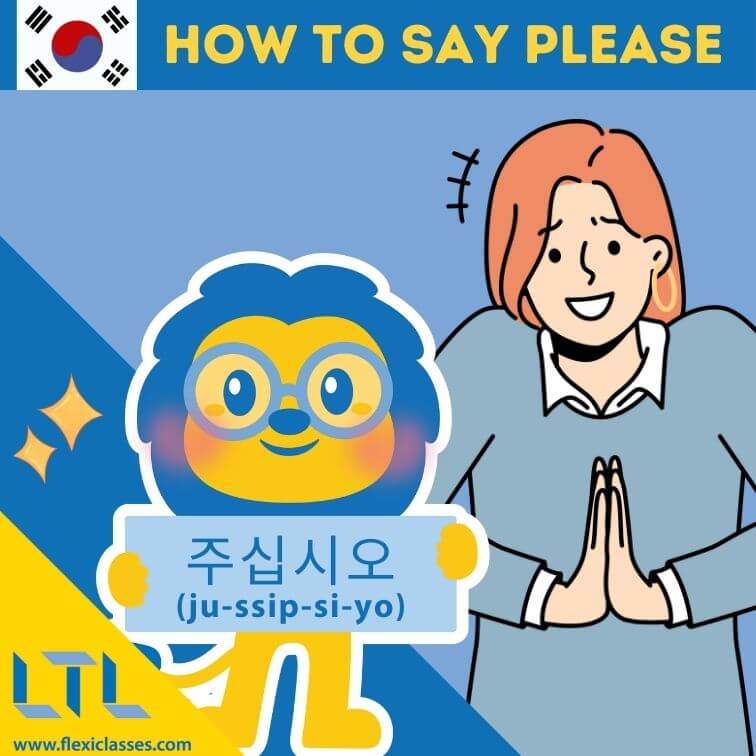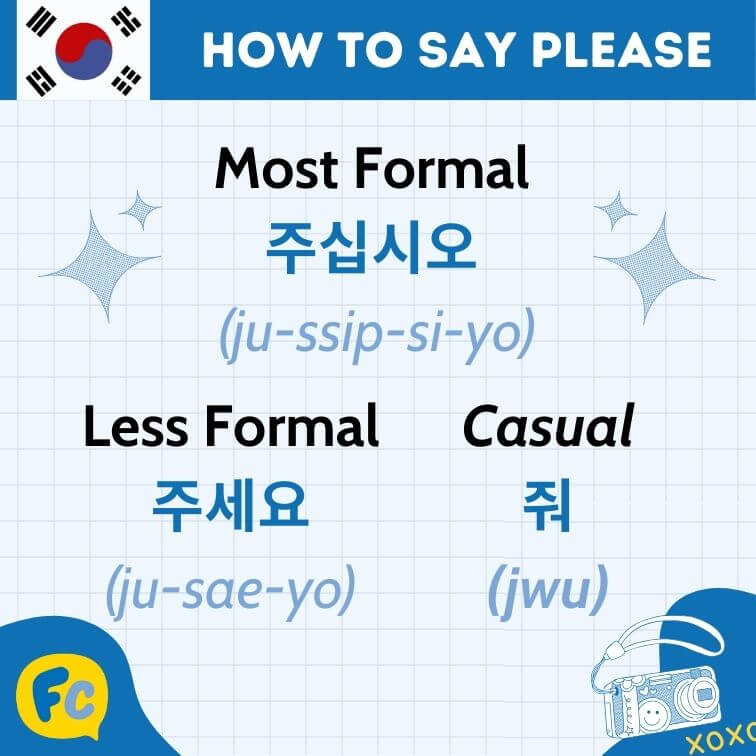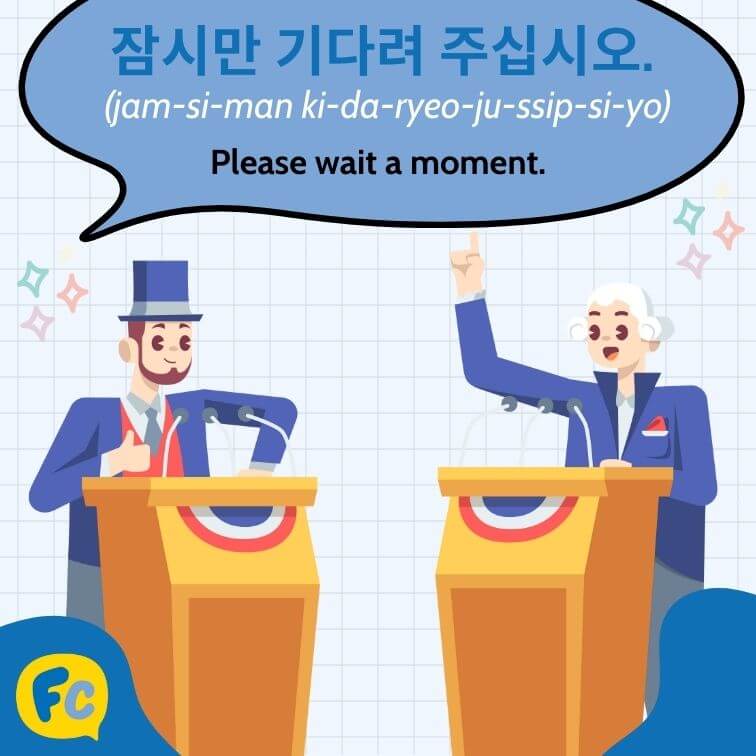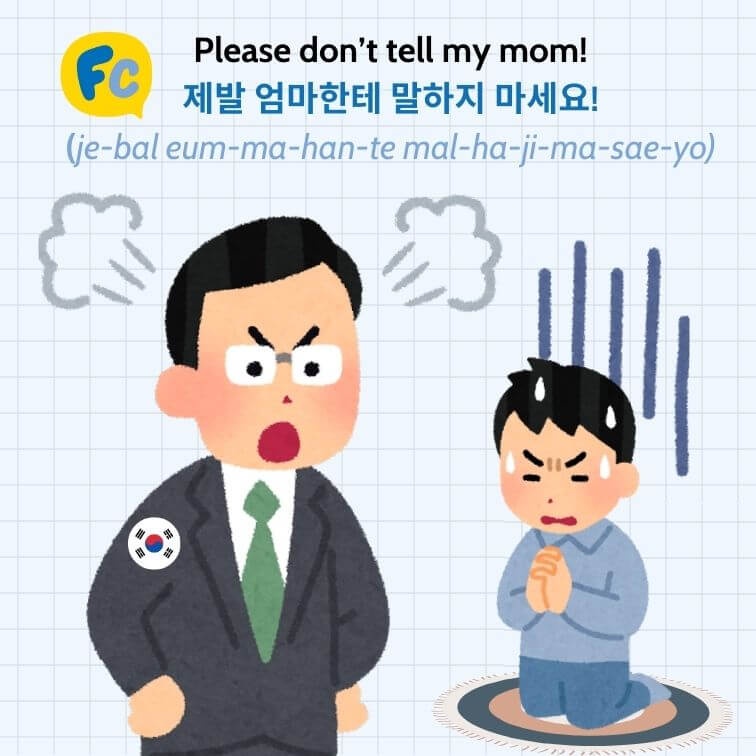How To Say Please In Korean // A Simple Guide
Master the Art of Politeness: Learn How to Say Please in Korean!

💥 Asking for a favour isn’t easy for some people, as troubling someone can feel inpolite. In Korean culture especially, politeness is considered a virtue.
For the most part, Natives expect you to be polite when asking them to do something for them. An important thing to remember is to always use the Honorific system to show respect.
However, sometimes formality doesn’t always equal politeness. Both the expression and the way you express yourself are equally important to get it right.
⬇️ Specifically interested in one of the chapters below? Clicking on the link will bring you to your preferred section!
Let’s learn how you can master saying please in Korean.
How To Say Please In Korean | The Most Common Way to Say Please
How To Say Please In Korean | Other Ways to Say Please
How To Say Please In Korean | Quiz
How To Say Please In Korean | FAQ
How To Say Please In Korean | The Most Common Way to Say Please

주세요 (ju-sae-yo) – Please
주세요 (ju-sae-yo) is the most common way to use please to request something from someone. There isn’t a specific meaning to this word when used to request something.
Koreans prefer to use indirect communication where messages are often implied rather than explicitly stated. This is one of many expressions Koreans use to imply a certain message.
If we translate this word literally, it means to please give. This is used to imply please in a polite way when requesting someone to do something.
Here are the three types of ways this word is expressed using the Honorific system.
| Korean | Transliteration | Honorific system |
|---|---|---|
| 주십시오 | ju-ssip-si-yo | Most Formal |
| 주세요 | ju-sae-yo | Less Formal |
| 줘 | jwu | Casual |
👉 Let’s begin with the most formal form of saying please.
주십시오 (ju-ssip-si-yo) – Most Formal
A common expression you would hear in hotels or department stores would be Please wait a moment.
잠시만 기다려 주십시오 (jam-si-man ki-da-ryeo-ju-ssip-si-yo)
Please wait a moment.
| Korean | transliteration | Meaning | Explanation |
|---|---|---|---|
| 잠시 | jam-si | A moment | Used with “만” (man) to indicate a brief duration. |
| 기다리다 | ki-da-ri-da | To wait | The basic form of the verb meaning to wait. |
| 기다려 | ki-da-ryeo | Wait (present form) | The conjugated present form of “기다리다,” indicating an ongoing action of waiting. |
You will also want to use this form when speaking with respected individuals like CEOs or the President of a country.

주세요 (ju-sae-yo) – Less Formal
Here is the most common expression used to say please.
잠시만 기다려 주세요 ( (jam-si-man ki-da-ryeo-ju-sae-yo)
Please wait a moment.
You may use this form for most situations when you need to ask someone to wait.
| Korean Phrase | TRANSLITERATION | English |
|---|---|---|
| 여기 앉아 주세요 | yeo-gi an-ja ju-sae-yo | Please be seated here. |
| 여기 | yeo-gi | Here |
| 앉다 | ahn-da | Sit |
| 앉아 | ahn-ja | conjugated form of sit |
| 주세요 | ju-sae-yo | please |
| 서울역으로 가주세요 | seoul-yeok-eu-ro ga-ju-sae-yo | Please take me to Seoul Station. |
| 서울역 | seoul-yeok | Seoul Station |
(으)로 (eu-ro) – word to indicate direction. Sometimes 으로 (eu-ro) is used together or only 로 (ro) is used depending on the words used in the front.
| Korean | TRANSLITERATION | English |
|---|---|---|
| 가 | ga | go |
| 주세요 | ju-sae-yo | please |
This would be a useful expression if you are travelling in Korea and hailing a cap to a destination.
Use this formula:
[destination] 으로 (eu-ro) or 로 (ro) 가주세요 (ga ju-sae-yo)
For example:
부산으로 가주세요
(busan-eu-ro ga-ju-sae-yo)줘 (jwu) – Casual Form
When asking for a request or favor from a close friend or family member you can use the casual form.
However, as casual forms are rather short, they could sound more like a command than a request. So be careful to use the correct tone to avoid misunderstanding.
Also, a great way to use casual form is to always add a thank you at the end. You could also use this for any of the formal forms above. You’ll never go wrong saying thank you!
기다려 줘 (gi-da-ryeo-jwu)
Please wait
This would be an expression to use when a friend might need to wait for you to finish work or get ready. If a friend wants you to stay with you through a class or party, this would also be an appropriate expression to use.
물 좀 갖다 줘. 고마워 (meul-jom-ga-dda-jwu)
Bring me some water please. Thanks.
서울역으로 가줘. 고마워 (Seoul-yeok-eu-ro ga-jwu. go-ma-wo)
Please take me to Seoul station. Thanks.

If a friend or family member is taking you to a place, the above expression would be an option. However, if you are close enough a more natural way to ask would be like the one below.
서울역으로 가자 (Seoul-yeok-eu-ro ja-ja)
Let’s go to Seoul Station!
BONUS Check out how to Make Requests in Korean in our Grammar Bank
How To Say Please In Korean | Other Ways to Say Please
| Korean | TRANSLITERATION | English Translation |
|---|---|---|
| 들어 오세요 | du-leo oh-sae-yo | Please come in. |
| 계속 하세요 | gwe-sok ha-sae-yo | Please continue. |
| 여기 계세요 | yeo-gi ge-sae-yo | Please stay here. |
📌 Always remember that the tone and gesture could really make a difference when using please. As the word please in this context is an implication without an explicit ‘please’ it’s easy to make this sound more like a command than a request.
Smile, be sincere, use a soft voice tone,
and say thank you at the end!
How To Say Please In Korean | Another Meaning for Please

제발 – (je-bal) Please – to plead or beg
👉 Here is an example of some ways you can use please as a meaning to plead or beg.
| 제발 엄마한테 말하지 마세요! | je-bal eum-ma-han-te mal-ha-ji-ma-sae-yo | Please don’t tell my mom! | (More formal) |
| 제발 엄마한테 말하지 마! | je-bal eum-ma-han-te mal-ha-ji-ma | Please don’t tell my mom! | (Casual) |

Hope you won’t be able to use this phrase often but know it as this can save you in a desperate situation.
| 제발 떠나지 말아요 | je-bal tteo-na-ji ma-ra-yo | Please don’t leave | (More formal) |
| 제발 떠나지 마 | je-bal tteo-na-ji ma | Please don’t leave | (Casual) |
Before we wrap up, make sure to remember the golden rule when requesting something in Korean. Proper expression, voice tone, and gesture all three need to harmonize.
🔐 Now that you have familiarized yourself with two different meanings of please, try using them with Natives. Immerse yourself in the daily conversation of Natives by paying attention to daily conversations on the streets or through K-dramas.
To learn more about Korean, check out these posts!
- What Does “Oppa” Mean in Korean? | Full Guide for Learners
- Korean Table Manners
- BEST WAYS TO LEARN KOREAN ONLINE || TOP 10 TIPS
- BTS Seoul Tour || 22 Places ARMYs Must Visit (in 2025)
- TOPIK Test: Overview, Levels, and Study Tips
How To Say Please In Korean | Quiz
How To Say Please In Korean | FAQ
How do you say please in Korean?
도와주세요 (do-wa-ju-sae-yo)
How do you say help me in Korean?
도와주세요 (do-wa-ju-sae-yo)
How do you politely reject a request in Korean?
죄송합니다 (jew-song-ham-ni-da) – I’m sorry
Use this formal way to sincerely apologize for a rejection.
What is a casual way to reject a request in Korean?
미안해 (mee-an-hae) – I’m sorry
Use this casual way to apologize that you won’t be able to accommodate the request
Want More From LTL?
FANCY LEARNING KOREAN? Check out our online Korean courses here.
We offer a 7-day free trial to all online students where you can study Korean 24/7.
Want to study Korean in Korea instead? Our Korean courses in Seoul can either be taken in small groups of no more than 5 students or individually for a more tailored experience.
We even offer incredible homestay experiences in Seoul too.
To top it all off, it certainly doesn’t end with Korean. Check out the other languages we teach 👇🏻










